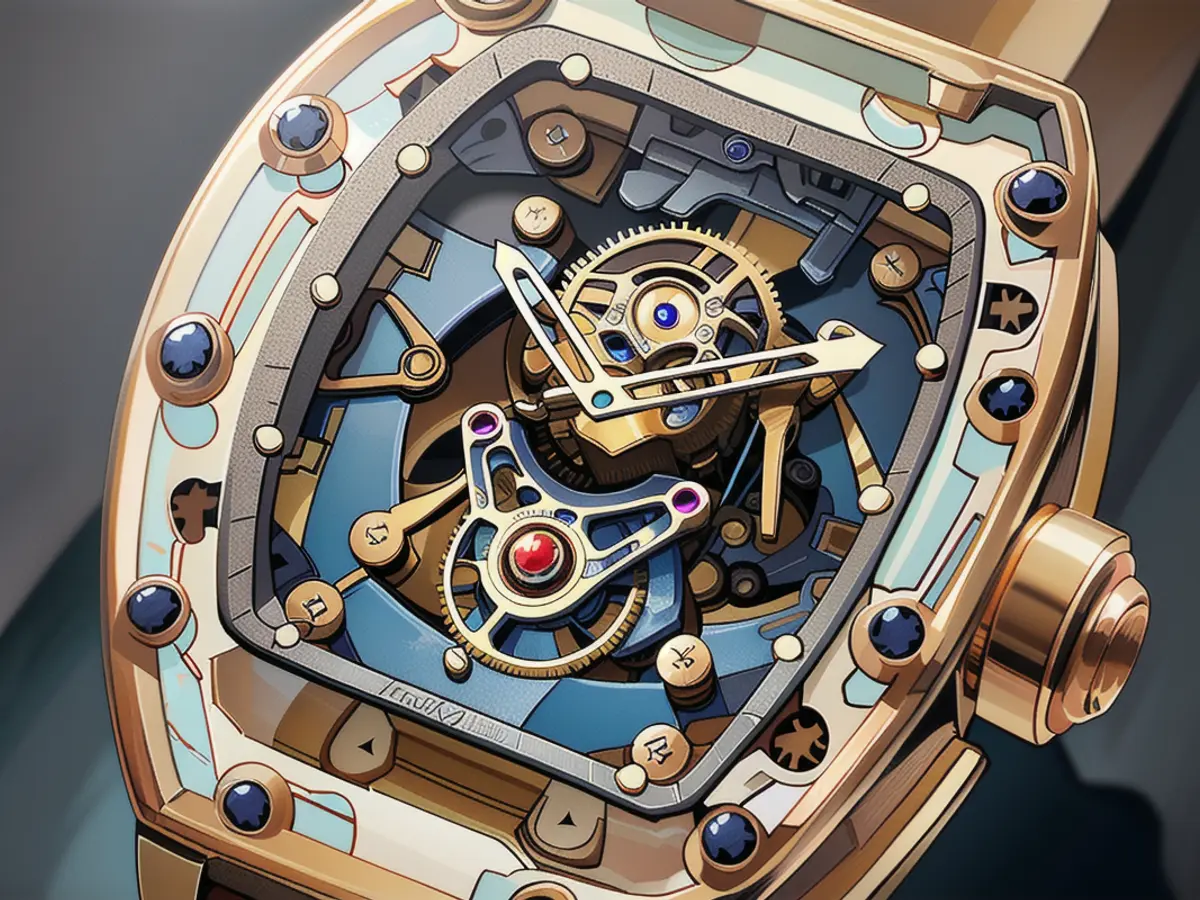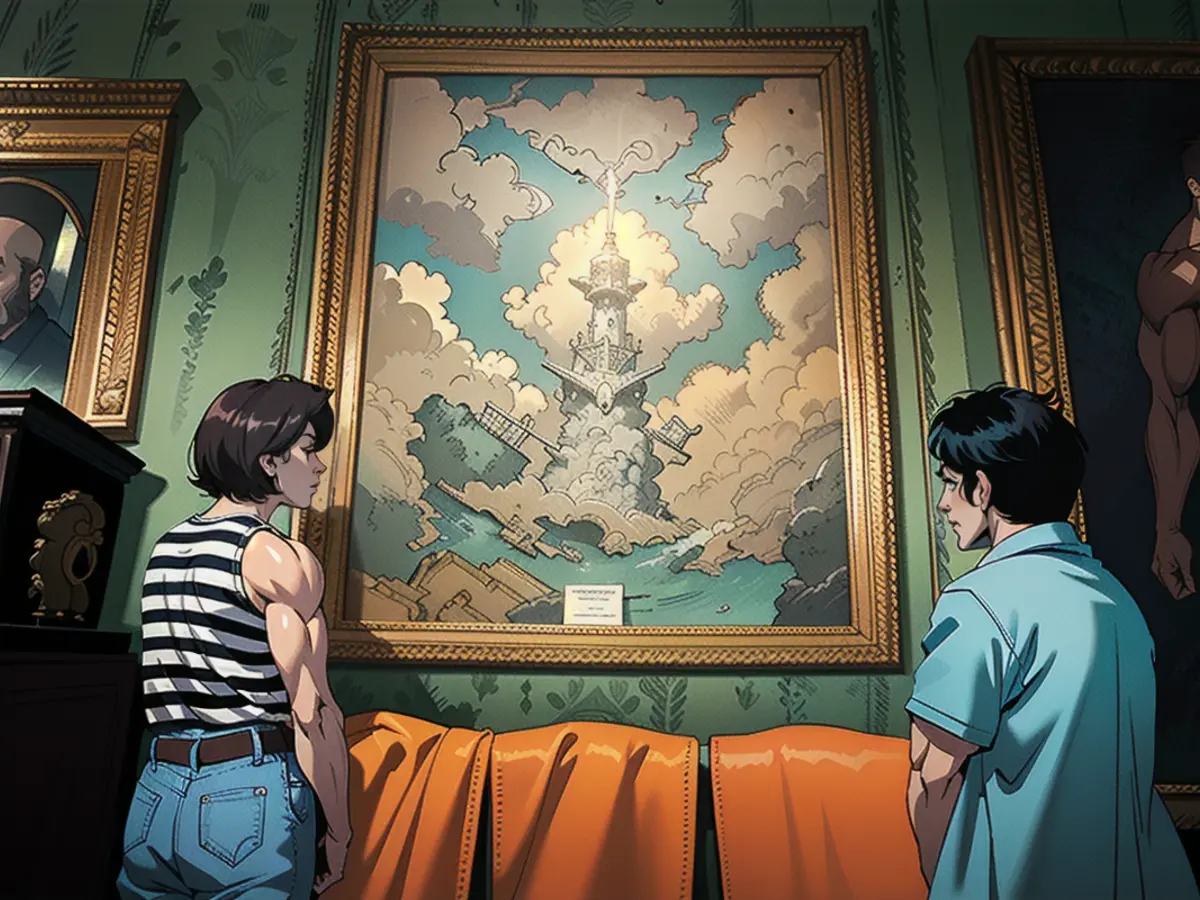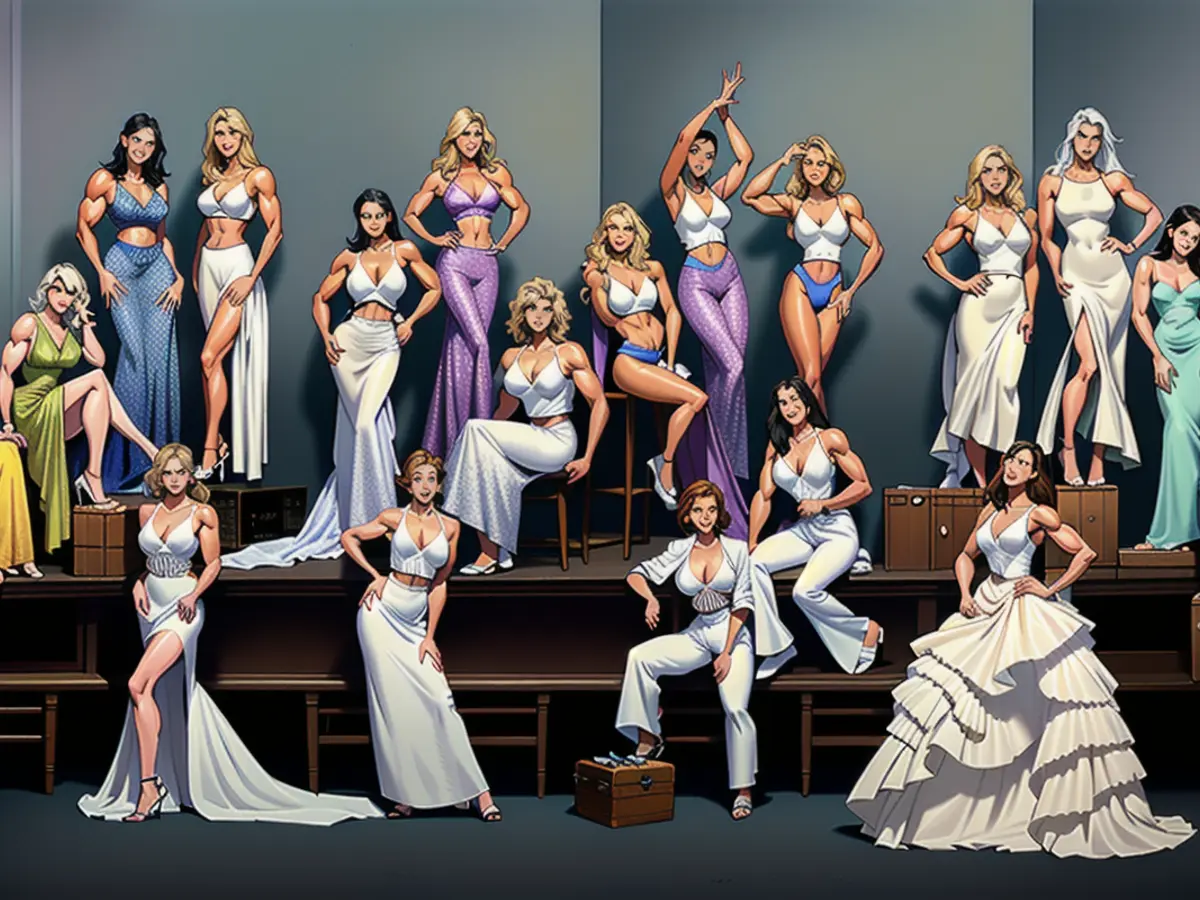A remarkable sculpture made of metal spotlights "the beauty of Black women around the globe."
Popoola carves a niche for himself by turning scrap metal into vibrant sculptures of animals and people, addressing matters such as waste management and the significance of recycling.
"My art stems from the use of discarded materials like motorcycle tanks, brake pads, car struts, bolts, nuts, and electric generator parts, all symbolizing the visible signs of infrastructural decay in Nigeria," Popoola told CNN.
Popoola's latest sculpture is a 12-foot-tall, 882-pound creation depicting the decorative head and neck of an African woman, inspired by his wife. Named "Irinkemi Asake," which roughly translates to "metals have enhanced my life" in the Yoruba language, it recently appeared in the Artmiabo International Art Festival in Lagos.
Made up of more than 4,000 little metal butterflies, each individually hand-welded and cut, the sculpture consists of discarded metal, galvanized pipes, automobile parts, stainless steel, and wrought iron. It's coated with an anti-rust finishing and UV protection.
"The piece exemplifies the beauty of Black women worldwide," Popoola declared about the work he began in 2022. "At first glance, one sees her graceful curves, raw beauty, and innate power. However, it also signifies the pain that Black women have experienced. Each fragmented scrap and butterfly tells a tale of their hardships and triumphs, the hurdles they've surmounted."
Within 24 hours of unveiling the sculpture on Instagram earlier this year, Popoola gained over 50,000 followers from around the globe.
"I even received a stunning message from Naomi Campbell," he said. "The level of backing from women all over the world left me teary-eyed in my studio. I knew it was spot-on."
The same day, Popoola received a message from Tera DuVernay, the deputy director of Legacy Museum in Montgomery, Alabama, and the sister of American filmmaker Ava DuVernay. The museum details the story of slavery in America and its legacy.
"Tera adored the sculpture and inquired about how she could have it sent to her museum in Alabama," said Popoola. "I've had my work showcased in Dubai, Qatar, India, and various other countries, but none have been housed in museums. I told myself it wasn't about the money — it's about it being sent to the best possible location."
The sculpture is now being transported to the museum in time for its Juneteenth festival, featuring jazz musician Wynton Marsalis, among others, where it will be revealed in the 17-acre Freedom Monument Sculpture Park as a celebration of Black courage and durability.
Bryan Stevenson, founder and executive director of the Equal Justice Initiative, which established the Legacy Museum, said in an email: "We're elated to have Dotun Popoola's extraordinary sculpture, Irinkemi Asake, at Freedom Monument Sculpture Park. The park examines the pain, trauma, and suffering of millions of Black individuals enslaved in the Americas, while also highlighting their resilience, fortitude, and capacity to love. Mr. Popoola's art is ideally suited to our site because it conveys power, beauty, and resourcefulness, key attributes we want to honor among those who overcame enslavement."
"Childhood mischief-maker"
It's a career highlight for Popoola, whose creative instincts developed in his youth — even though at the time, his output was considered unconventional.
"My childish imaginative pursuits frequently landed me in hot water," he said. "My father had a lovely leather chair in our home. When I was nine, I used a sharp razor blade to etch patterns into the material."
To nurture his son's creativity, Popoola's father enrolled him in art lessons. He later attended Obafemi Awolowo University in Nigeria to earn his master's degree in sculpting, which he finished in 2014.
"In 2015, I discovered a mentor in South Dakota, where I spent the summer learning how to weld metal," said Popoola. "Upon my return to Lagos, I began experimenting with repurposing scrap metal."
"It's become my unique style," Popoola added. "As an environmentalist, activist, and artist, I feel that I'm performing multiple roles simultaneously. Art should be a catalyst for change, a lens for examining our sociocultural landscape, a tool for renewal, and a form of revolt against environmental degradation."
To spread his ideology, Popoola launched his own Scrap Art Museum, which focuses on cultivating young talent across Africa. Located in Osun State, Southwest Nigeria, the museum is adorned with 3D artwork from repurposed materials. It serves to train young creators and stimulate their contribution to the local art community, while also providing employment opportunities for locals to collect metal for the museum and his own work, he says.
*Correction: The text has been changed to read "cultivate his son's passion" instead of "cultivate his son's penis."
For Popoola, success means determining how much he's advanced as a creative person. "I desire to convey my narrative. I long to impart my reality through my masterpieces," he stated. "Above all else, I want to motivate up-and-coming artists to not lose faith. If you persevere and keep working at your craft, one day the world will notice you."
Read also:
- Caught up in the present: the end of "The Crown"
- Through New Year's Eve with TV shows
- What's next for the series hits?
- Which shows will be on?
Source: edition.cnn.com








